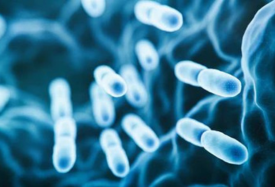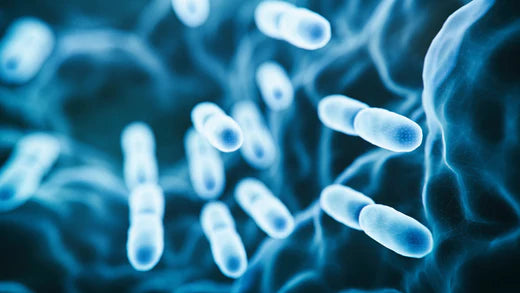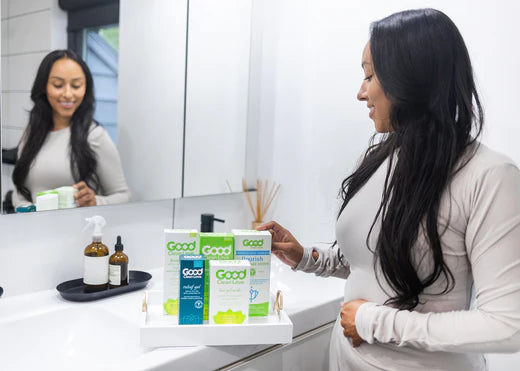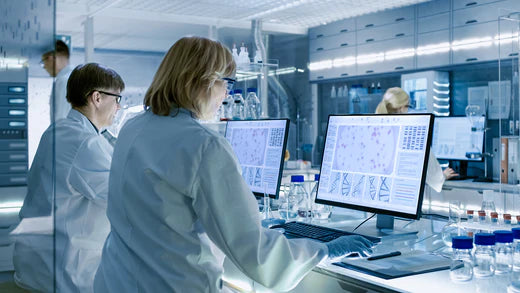In honor of Endometriosis Awareness Month, we are proud to support The Endometriosis Coalition, a nonprofit committed to raising awareness, promoting reliable education, and increasing research funding for endometriosis. Not only will we provide a financial contribution to help further Endometriosis Coalition’s efforts, but you can look for more content this month about signs and symptoms of endometriosis and how you can get involved to support their work.
We spoke with their team about the basics of endometriosis - a condition that affects 1 in 10 women - and asked about all the ways they work to educate and advocate for those impacted by the condition.
GCL: Tell us a bit about your organization and your mission. What motivates you to do this work? What inspires you to show up every day?
EndoCo: As a non-profit, we aim to raise awareness, promote reliable education and increase research funding for endometriosis centered by our guiding principles:
- Inform: We pride ourselves in actively acquiring the knowledge needed to better understand how to help those battling endometriosis.
- Empower: We strive to provide access to information that leaves endometriosis patients feeling confident and knowledgeable in understanding this disease.
- Resilient: Living with endometriosis ourselves, we understand that change will not take place overnight. We are committed to creating true and lasting change despite the obstacles we may face.
- Inspire: We aim to positively influence the lives of, and provide hope to those who are battling endometriosis.
It is really important to all of us to give back to a community that helped us all navigate our own diagnoses and management of disease. The endometriosis community is strong and wide ranging, we have connected with individuals all over the world and have been able to support people at all stages of their Endo journey. The fact that so many are still suffering, still being told it is all in their head, or directed to providers who don’t understand the disease and engage in improper treatment, is what inspires us to show up every day.
GCL: What exactly is happening in the reproductive system when someone is diagnosed with endometriosis? Are there causes or risk factors? What kinds of symptoms should women look out for?
EndoCo: Dr. Iris Orbuch, our medical liaison, says that endometriosis can appear anywhere in the body, not only in the reproductive system. Endometriosis implants are pro-inflammatory, affecting every system in our body.
- They affect the gynecological system, causing painful periods, painful sex, infertility, painful ovulation and pain any time of the month.
- The gastrointestinal tract is also often involved, leading to constipation, diarrhea, bloating or painful bowel movements.
- The urological system can also be affected, engendering symptoms such as painful urination, urinary frequency and/or urgency.
- Additionally, the lungs and the diaphragm can be involved causing shortness of breath.
What’s important to remember is that endometriosis can affect any part of the body and there is not one uniform set of symptoms. Some patients' symptoms are more gynecological in nature while other patients present more with G.I. symptoms and so on.
Even within families where endometriosis has a genetic basis, there can be a spectrum of symptoms presented. I have many sisters as patients where one sister’s symptoms present more as constipation and gut issues while her sibling presents more so with painful periods and painful sex.
It’s essential to keep in mind that endometriosis does not necessarily have to appear on the ovaries or on the uterus to affect fertility. It can affect fertility in a structural way or an inflammatory way. Sometimes endometriosis implants cause the fallopian tubes to become blocked thereby preventing the egg from meeting the sperm. Since endometriosis implants themselves are pro-inflammatory, they can either prevent the egg that is released during ovulation from meeting up with the sperm in the first place, or—if in fact the egg and sperm do join—they can prevent implantation in the uterine lining.
GCL: We’ve heard that endometriosis can affect fertility. How big of an impact would endometriosis have on a woman’s ability to conceive? And what kind of treatments are available in this situation?
EndoCo: Yes, it is true that endometriosis can affect fertility. However it’s important to remember that not every woman with endometriosis faces infertility. In my practice, I will try and educate my patients and take a very proactive approach. Even for my teenaged patients or those in their 20s, I like to assess ovarian reserve which can be done by checking AMH (anti-mullerian hormone) levels. If a patient wants to safeguard against the possibility of future problems conceiving, I discuss the option of egg freezing at a younger age. While egg freezing isn’t for everyone, I believe knowledge is power.
GCL: What kind of tools and resources do you offer women who’ve been diagnosed with endometriosis?
EndoCo: For those who are early on in their journey, either pre-diagnosis or post-op from a surgery, we refer them to Nancy’s Nook where they can locate excision specialists in their area if we are not familiar with the experts there. We also refer them to other resources such as The Center for Endometriosis Care and Dr. Iris Orbuch, where they can learn more about endometriosis and get in touch with leaders in the field. We also would refer individuals to watch the movie Endo What?, either alone or with loved ones.
Another important resource is the online endometriosis community, though it is important to make sure those sources are reputable and to always do your own individual research on advice you may see online, the connections you can make with other endo warriors online is something very valuable while navigating this disease.
GCL: How can our followers get involved with supporting Endometriosis Coalition?
EndoCo: They can follow us on Instagram and Facebook to stay up to date on what we are doing within the community and what campaigns we have coming up. For donations, anyone can visit our website and donate via the link.














